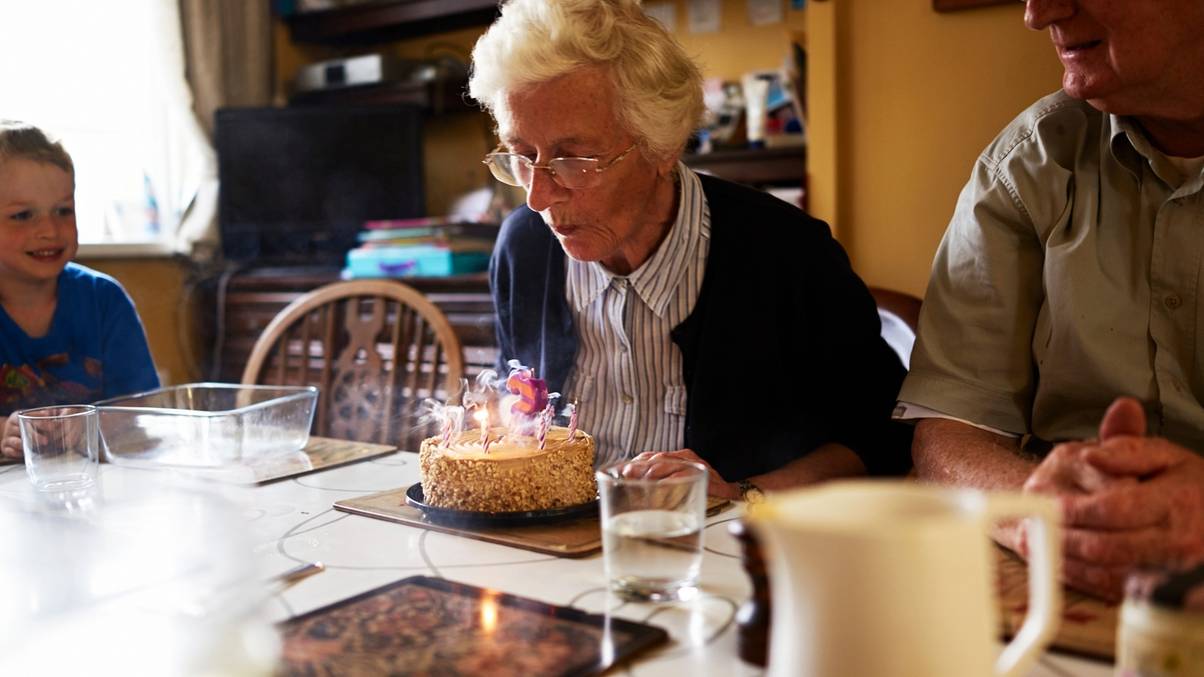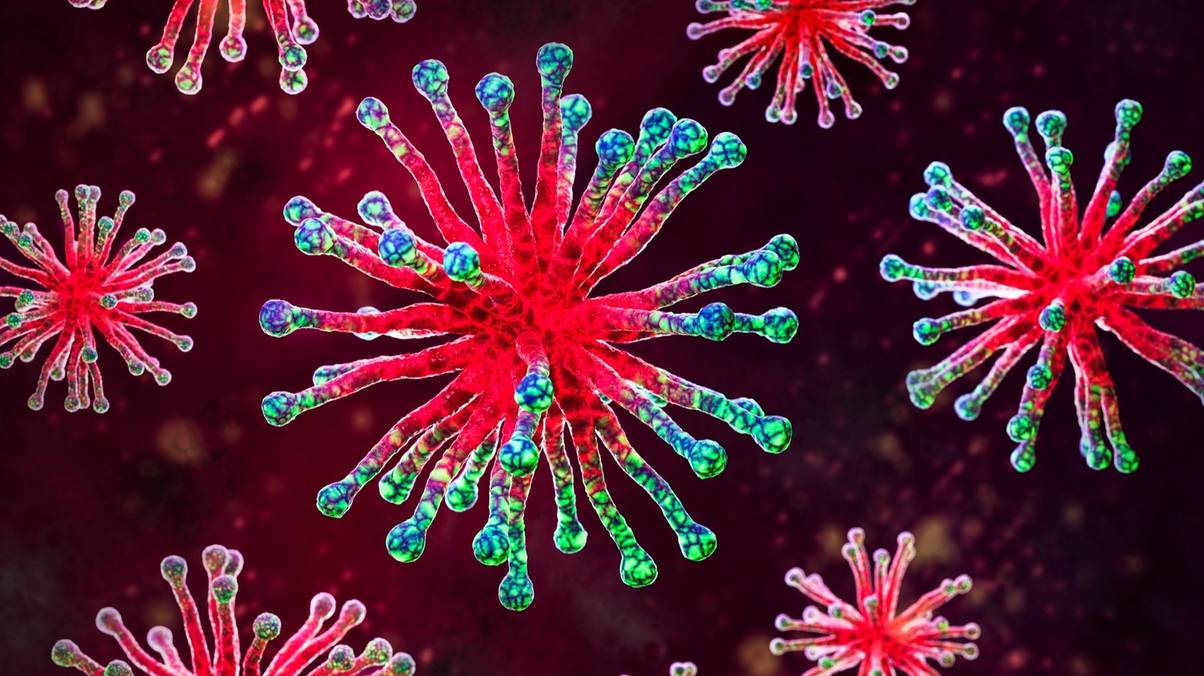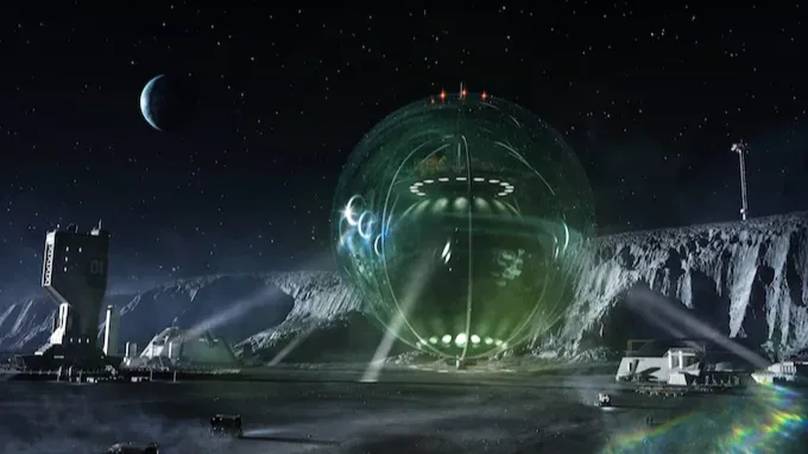“Inside the Shocking Experiment: How a Family’s Disturbing Quest for Animal Bonding Ended in Heartbreak”
Imagine a world where a baby human and a baby chimpanzee grew up side by side, fully immersed in each other’s quirky little lives. Sounds cute, right? Well, back in the 1930s, that bizarre dream became a reality—but unfortunately, it took a tragic turn. Winthrop Niles Kellogg and his wife, Luella, embarked on this curious experiment, raising their 10-month-old son, Donald, alongside a 7-and-a-half-month-old chimp named Gua, treating them as if they were siblings. Picture this: adorable outfits, high chairs at mealtime, and sweet goodnight kisses. But the underlying question was haunting: could the environment shape behavior more than genetics? As you dive into this strange tale, you’ll uncover not just the extraordinary dynamics of their daily life but also the deep challenges and heart-wrenching outcomes that unfolded. Intrigued? Buckle up… you won’t want to miss this compelling story. And if you want to learn more, LEARN MORE.
Back in the 1930s, a human baby aged just 10 months old was forced to grow-up alongside a chimpanzee, but the experiment had tragic results.
Animal psychologists Winthrop Niles Kellogg and his wife Luella raised their son, Donald, alongside a chimp named Gua, who was seven-and-a-half-months old when she joined the family.
In what people have called a ‘disturbing’ experiment, the pair were treated as ‘brother and sister’, wearing baby clothes, eating in high chairs and having a kiss goodnight before bed.
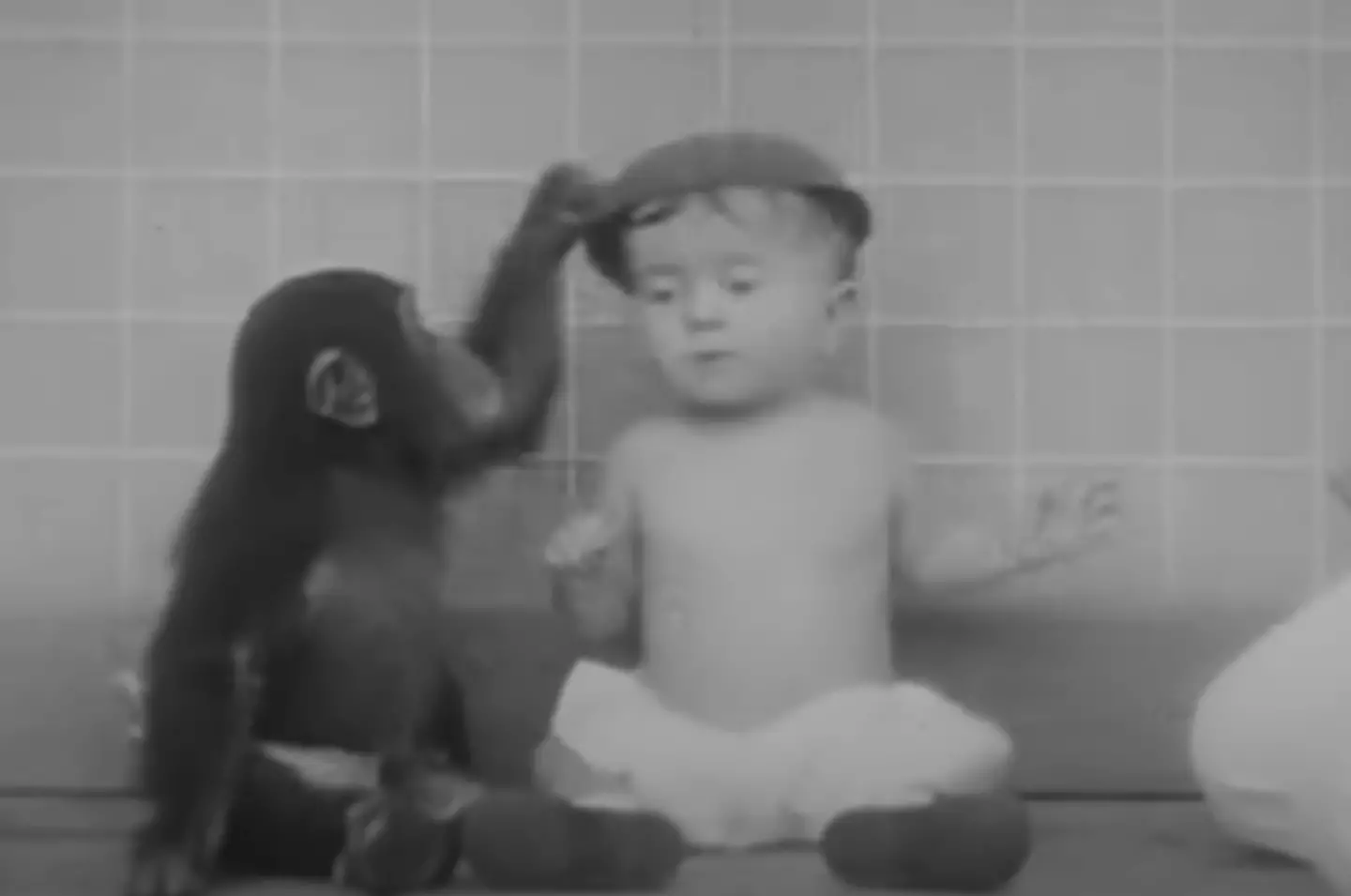
Gua and Donald were raised as siblings (YouTube/AV Geeks)
“What would be the nature of the resulting individual who had matured… without clothing, without human language and without association with others of its kind?” Winthrop wrote in his book, The Ape and the Child.
According to reports, for nine months, the couple conducted tests on Gua and Donald, reportedly for hours each day.
One saw the pair being spun around in chairs until they began to cry.
“The basic question was, is a chimp a chimp because it has chimp genes or because it is raised by other chimpanzees?” writes Theodore Dumas, in the Adult Health and Early Life Adversity: Behind the Curtains of Maternal Care Research.
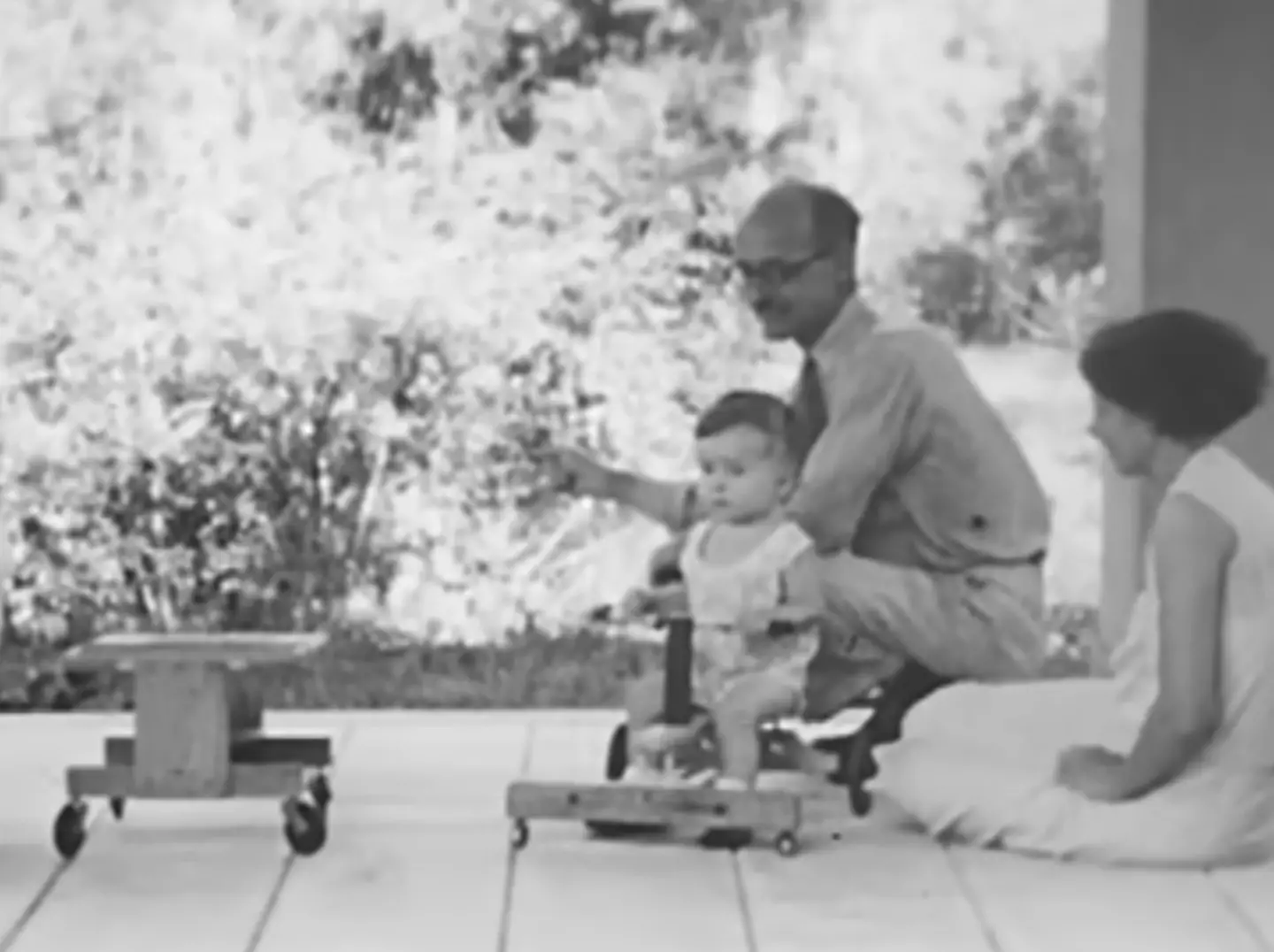
The experiment was cancelled after nine months (YouTube/AV Geeks)
“Thus, if baby Gua grew up to be very chimp-like in a human household, then genes win. However, if baby Gua grew up to be more human than chimp, then environment wins. As such, Gua was treated like Donald’s sister and underwent the same bathing, dressing, and feeding processes.”
The test was due to last five years, but the couple ended up having to cancel the experiment early after concerns that Donald was showing worrying behaviours, such as grunting for more food, wrestling with Gua and even biting.
Other theories suggest the parents became concerned that Gua may one day harm Donald as her strength increased with age.
Sadly, both Donald and Gua had a tragic ending.
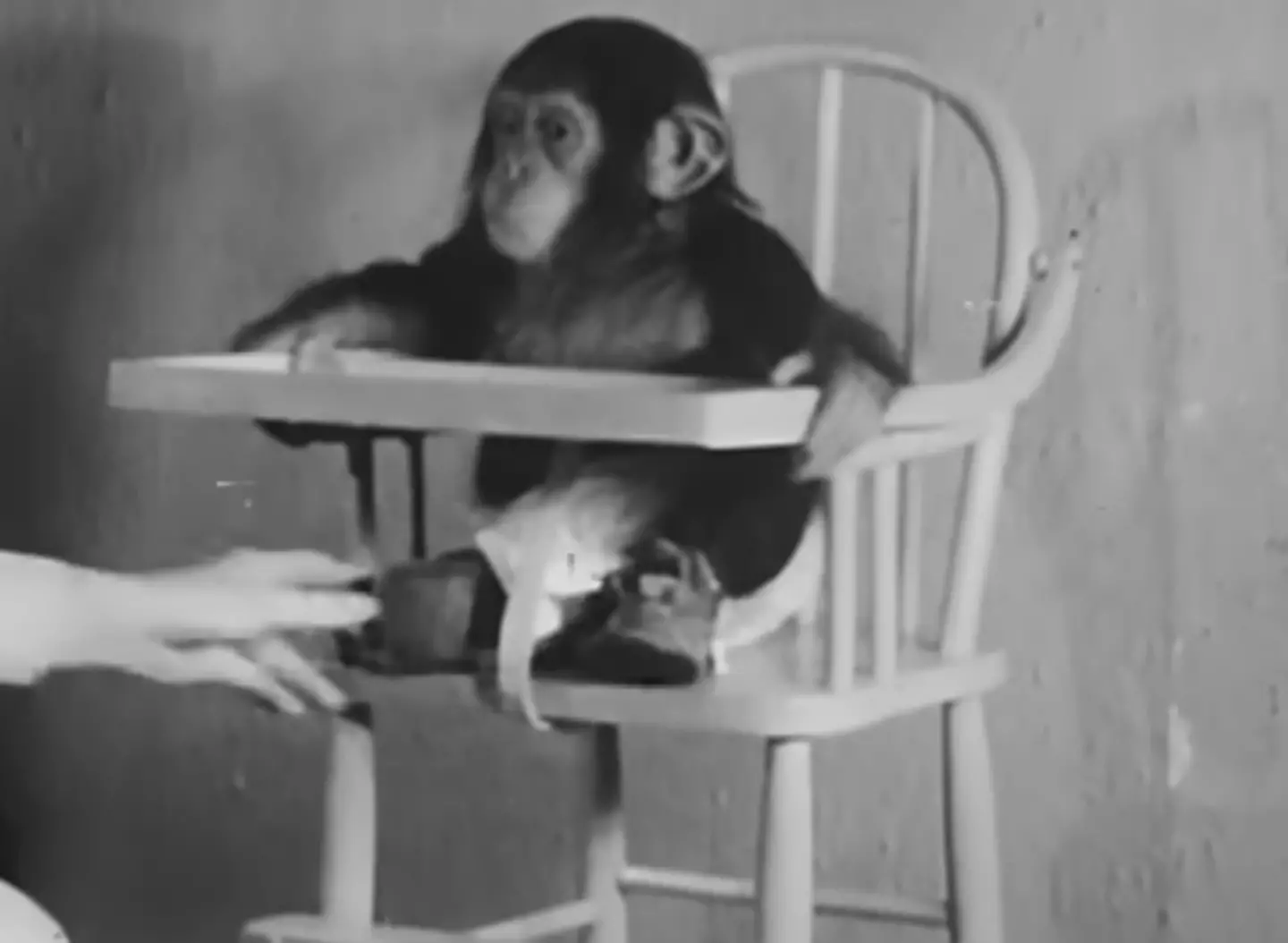
Gua sadly died at the age of three (YouTube/AV Geeks)
After the experiment was cancelled, Gua was sent away, from what was essentially a loving family environment to a ‘relatively barren cage’.
“This was the second time she was stripped from her ‘mother/caregiver’ and she went from a warm affectionate family life to a relatively barren cage with other strange and not so well-behaved chimps,” said Dunas.
“She died less than a year later, circa her third birthday, of a broken heart (the official cause of death was determined to be pneumonia).”
Meanwhile, Donald sadly died in 1973 at the age of 43. He is believed to have taken his own life one year after his parents passed away.







